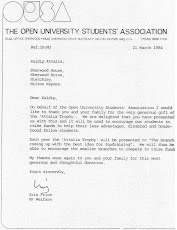The Brutal End of an Empire in Kenya
This book is a must reading for the general public, decision makers and development practitioners working on advocacy and policy dialogue on equity and social justice in Kenya.
The historical facts outlined on Mau Mau in particular, could not have come at a better time than now when the country is deadlocked on political and economic reforms.
The Mau Mau uprising in Kenya has been portrayed as one of the most barbaric upraising of the twentieths century. Britain’s Gulag by Caroline Elkins questions this accepted orthodoxy and examines the crimes perpetrated by colonial forces against Mau Mau and considerable measures that the British colonial government undertook to conceal them.
The author provides a comprehensive overview of what happened inside Kenya’s detention camps as well as efforts to conceal the violence from the post-independence generation.
The publication is an eye opener and therefore a big resource in attempting to set the record straight. It brings out significant lessons that both colonial and independent Kenya governments never learnt. Essentially it is the single most resource for any one seeking to fully understanding the savagery of the Mau Mau war and the ruthless determination with which Britain sought to control its empire in Kenya.
The book explains the origin of Mau Mau upraising in quest for restitution of land appropriated by White Settlers in Kenya in early part of the twentieths century. Mau Mau rebellion and colonial legacy is central to the current socio-economic and political crisis facing the country. The crisis characterized by poverty, inequality and increased crime and insecurity; can fairly be explained by the ruthless force and denial with which the British sought to crash the rebellion.
Elkins views the history from a human rights perspective elucidating how inequalities have given rise to exclusion and failure of people’s voices to be heard. The Mau Mau fought for land and freedom – ironically both remain a dream for majority of Kenyans forty years after independence. She brings a new revelation to the root causes of the current inequality in Kenya between the rich and the poor with respect to land as a resource and other economic opportunities. While the British laid the foundation for a colonial legacy characterized by lack of accountability, injustice, violations of international conventions, torture and detention without trial, the colonial heritage continues to hound independent Kenya with gross violation of human rights of citizens and wanton destruction of lives and property.
In a practical sense, this book is a case in point for establishment of a Truth Justice and Reconciliation Commission for post-independence Kenya. It does this by sending a strong message that it is better to let people know the truth in order to allow for reconciliation and forgiveness than wait for it to come out later because it ultimately will.
Elkins’ findings seriously challenge an archaic strategy of destroying records to conceal incriminating evidence. The strategy is based on the premise that if records do not exist, people will not know and therefore the atrocities did not happen. Until this publication came out all that most Kenyans knew is what the political elites wanted the citizens to know.
Kenyatta understandably sacrificed the past for the future by calling for reconciliation in the early days of his presidency by sweeping issues under the carpet.
The book is highly recommended to the many young Kenyans born after independence who know nothing about Mau Mau uprising and how it led to independence.
If you are concerned about oppression and state brutality in Kenya and accumulation of wealth by a few at the expense of the majority, this book provides the starting point in addressing these and other unresolved issues in a more direct, honest and bold manner.
Reviewed by: Hudson Shiverenje is Program Officer at MS Kenya
Subscribe to:
Post Comments (Atom)
Attalia Trophy

Open University MK
Attalia Trophy ~ OUSA
Ref: IP/MJ 21 March 1984
Kuldip Attalia,
Sherwood House,
Sherwood Drive,
Bletchley,
Milton Keynes.
Dear Kuldip,
On behalf of the Open University Students’ Association, I would like to thank you and your family for the very generous gift of the “Attalia Trophy”.
We are delighted that you have presented us with this and it will used to encourage our students to raise funds to help their less advantaged, disabled and housebound fellow students.
Each year the “Attalia Trophy” will be presented to “The Branch coming up with the best idea for fundraising”.
We will thus be able to encourage the smaller branches to compete to raise funds.
My thanks once again to you and your family for this most generous and thoughtful donation.
Yours sincerely,
Iris Price
VP Welfare
OUSA ~ The Open University Students Association
OUSA Office Sherwood House, Sherwood Drive, Bletchley, Milton Keynes MK3 6RN
Phone: 0908 71131
Kuldip Attalia,
Sherwood House,
Sherwood Drive,
Bletchley,
Milton Keynes.
Dear Kuldip,
On behalf of the Open University Students’ Association, I would like to thank you and your family for the very generous gift of the “Attalia Trophy”.
We are delighted that you have presented us with this and it will used to encourage our students to raise funds to help their less advantaged, disabled and housebound fellow students.
Each year the “Attalia Trophy” will be presented to “The Branch coming up with the best idea for fundraising”.
We will thus be able to encourage the smaller branches to compete to raise funds.
My thanks once again to you and your family for this most generous and thoughtful donation.
Yours sincerely,
Iris Price
VP Welfare
OUSA ~ The Open University Students Association
OUSA Office Sherwood House, Sherwood Drive, Bletchley, Milton Keynes MK3 6RN
Phone: 0908 71131


















No comments:
Post a Comment